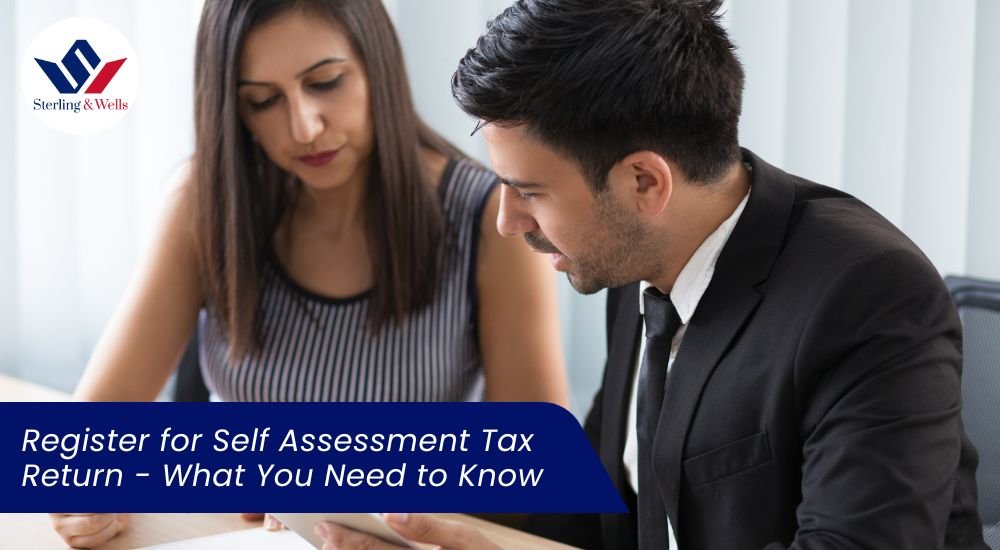Register for Self Assessment Tax Return – What You Need to Know


Starting from 6 April 2025, new rules came into effect that impact taxpayers who start or stop self-employment during the year, particularly directors of close companies. These updates aim to improve transparency and strengthen compliance. Directors of close companies are now required to disclose details that were previously optional, such as dividends received, shareholding percentages, and the company’s registered number. This shift means that more comprehensive financial reporting is expected and scrutinised, making accurate record-keeping more important than ever.
For self-employed individuals, the changes require you to report the precise start or end date of your trading activity during the tax year. Maintaining clear and accurate records of these dates is essential to ensure compliance and to avoid errors or penalties to register for Self Assessment tax return.
Registration for Self Assessment remains straightforward, but timely action is crucial to avoid penalties. If you are self-employed or have other taxable income, you must register with HM Revenue & Customs (HMRC) using the online process available via GOV.UK. To register, you’ll first need a Government Gateway account, which requires basic personal information such as your name, email address, and National Insurance number.
Once you complete registration, HMRC will issue a Unique Taxpayer Reference (UTR), typically within 15 working days. This UTR is essential for submitting your tax return and must be quoted whenever communicating with HMRC about your Self Assessment.
It is critical to register before 5 October following the end of the tax year in which you earned the income. Meeting this deadline ensures that you can file your tax return correctly and avoid penalties.
After registering, the next step is submitting your Self Assessment tax return, usually online, by 31 January following the end of the tax year. The return requires you to report all sources of income, including employment, self-employment, dividends, rental income, and foreign earnings, as well as claim any allowable expenses.
HMRC has introduced several digital enhancements to streamline the filing process. For the 2024/25 tax year, the online filing deadline is 31 January 2026. Preparing your financial records in advance will help prevent last-minute issues and reduce the likelihood of mistakes.
To stay compliant under the new rules:
Keeping detailed records throughout the year is vital. Ensure you retain documentation related to income, expenses, dividends, and shareholdings. The new regulations place greater scrutiny on these details, so accurate bookkeeping can prevent errors and simplify your tax filing process.
Navigating the complexities of Self Assessment, especially with the recent changes, can be challenging. Sterling & Wells provides expert guidance to make the process straightforward. Whether you are registering for the first time, reporting changes in self-employment status, or filing detailed dividend and shareholding information, our team ensures your compliance with HMRC regulations.
We assist with preparing and submitting your tax return accurately and on time, reducing stress and helping you avoid potential penalties. Our support also includes record organisation, expense tracking, and advisory services tailored to your specific circumstances. By partnering with Sterling & Wells, you gain confidence that your tax obligations are managed efficiently, leaving you free to focus on your business or personal affairs.
Staying informed about the latest Self Assessment rules and deadlines is essential for all taxpayers, particularly those who are self-employed or directors of close companies. With meticulous records, timely registration, and professional guidance, the process can be smooth and manageable.
We recommend starting early, keeping comprehensive documentation throughout the year, and seeking expert advice if necessary. Leveraging the support of trusted tax services like Sterling & Wells ensures that your Self Assessment journey is as straightforward and stress-free as possible.
If you are ready to get started or require professional assistance with your Self Assessment tax return, contact Sterling & Wells today. Our team is here to help you stay compliant and optimise your tax position efficiently.
We are Sterling & Wells — a UK-based team of accountants and tax advisors helping individuals and businesses stay fully HMRC compliant. From VAT and bookkeeping to self-assessments and tax planning, we’ve got your finances covered.
In This ArticleHow to Register for Self Assessment in 2025Filing Your Tax ReturnImportant Deadlines and Record-Keeping TipsHow Sterling & Wells […]
In This ArticleHow to Register for Self Assessment in 2025Filing Your Tax ReturnImportant Deadlines and Record-Keeping TipsHow Sterling & Wells […]
In This ArticleHow to Register for Self Assessment in 2025Filing Your Tax ReturnImportant Deadlines and Record-Keeping TipsHow Sterling & Wells […]
Ensure complete compliance, eliminate the hassle, and optimize your tax position for the year ahead.
Ensure complete compliance, eliminate the hassle, and optimize your tax position for the year ahead.
Ensure complete compliance, eliminate the hassle, and optimize your tax position for the year ahead.